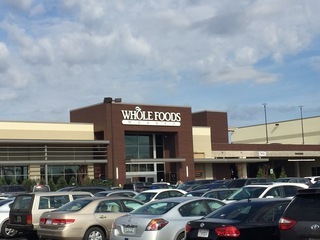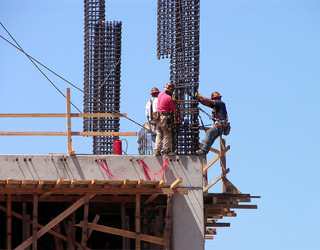There was a great article that was recently posted by the Harvard Business Review that I think bears some very important consideration by everyone.
Stress is easy to identify, and we are all certainly stressed. The predictability of our daily lives has been interrupted. Many of us have lost jobs, faced furloughs or pay cuts. Our kids are home from school. We’re worried about our families catching this disease, and ourselves as well. We’re all stuck together in this purgatory of waiting for this crisis to play itself out with no idea of what kind of world waits for us on the other side. We know that this will end - all pandemics eventually do - but we’re going to emerge from our shelters into a changed world.
My wife and I have spent the last couple of weekends cleaning out closets. It kind of feels like rearranging the deck chairs on the Titanic at times, but it also keeps my mind occupied for the most part and keeps it from going into pretty dark places. And hey, my closet is now the cleanest it’s been since we moved. But every so often my mind ends up going there anyways.
Such as from seeing a pile of T-shirts.
While going through a bin of old T-shirts I found a bunch of old shirts I had accumulated from various conferences I had been to over the years. My first professional conference was Astricon in 2005, when I was working as a voice-over-IP consultant. And conferences quickly became one of my favorite “fringe benefits” of working in tech.
Especially for someone who does not work in a tech center, it was very nice to be around others working in the same industry as I. Huntsville has a lot of high tech jobs, but they predominantly revolve around the defense and space industry, not the Internet. I can’t really talk with most of these people about what they do because a lot of it is top secret.
But conferences were a chance to see what people in the wider industry were doing in a way that just didn’t transmit as well through blogs, news aggregators or social media. Many of the best ideas I didn’t even get from official panels, but from the “bar track” where you’d just kick ideas around over beers and see what others were doing. And since they were often on the West Coast, it was a chance to visit friends out there that I rarely got to see.
Even more fun, I later discovered, was speaking at them. The stress of putting together the “prefect” presentation deck was always high and sometimes it was intimidating getting up in front of a bunch of very smart people and talking about something they’re interested in learning about, but it was something that I was really starting to enjoy and was looking forward to doing more of the next few years.
Last week O’Reilly, perhaps the biggest name in tech conferences, officially pulled the plug on all live events going forward. They are closing down the live parts of their business and going fully online in the future.
I have been to a number of O’Reilly events over the years. I have learned so much there, and have had amazing times with my coworkers and friends. Of the O’Reilly conferences I’ve attended (OSCON, Velocity, and MySQL Conference, multiple times each), every one has special memories attached to it.
-
The time at OSCON I raced go-karts around a parking garage Mario Kart style at a Sun Microsystems party.
-
Having a beer with Brad Fitzpatrick and trying really hard not to fangirl him because LiveJournal was such a huge part of my college life.
-
Trolling a coworker by changing the radio from the back seat of the car while driving to lunch. He thought there was something going wrong with the car until he realized we were messing with him.
-
That time Brian and I had a bunch of beers and started throwing ideas against the wall until we accidentally solved a major vexing question mark at work.
-
That time we had a bunch of beers and then wrote a bunch of code to create our own internal link shortener, finally wrapping up at about 3am (but being smart enough to not deploy it until later that week.)
Even just more than three months ago I was the Tech Leadership Summit learning from some of the best tech leaders out there on ways I can do better for my team and my company. And while they were not an O’Reilly conference (and as far as I know, their other events are still a go), surely O’Reilly’s move and our continued struggles to contain COVID-19 are not a good sign.
All of that is gone now. And all I have left is what I learned, my memories, and these T-shirts.
To be sure, people lost their jobs over this, which makes my wistful memorials to these events seem perhaps ill-timed. I feel bad for them, and I hope everyone is able to land on their feet. Everyone I ever dealt with at a conference was top-notch and had their stuff figured out. But I think it speaks to a little bit of mourning over a world that will likely be radically different when all this is over.
Some things may be better. I’ve already mentioned how widespread work-from-home may decentralize tech outside of Silicon Valley and a few other locales. Even YCombinator, perhaps one of the premiere Silicon Valley startup incubators and who has long had a policy that all accepted companies must relocate to the valley at least temporarily, may go fully remote for its next batch. This may lead to a new renaissance for small and mid-sized cities around the world that have seen opportunities dry up as more people who can work remotely and more companies relocate to less-expensive locations.
Also, events that were previously attendance-limited are now open to more people than ever before. Now everyone can get a WWDC ticket!
But some things may be worse. Until a vaccine is found for COVID-19, or at least a treatment that reduces its severity down to something closer to the common flu, it is hard to visualize a world where we can have large in-person gatherings like conferences. And that means that the whole ecosystem of tech conferences - organizers, speakers, caterers, vendors, venues, registration workers, security, entertainers - are all facing an uncertain future thanks to something that was entirely out of their control.
I put the T-shirts in the donate bin. I have a feeling there are going to be a lot of people that need clothing soon, and they probably won’t care that the shirt say Yahoo, Facebook or Datadog on it.



